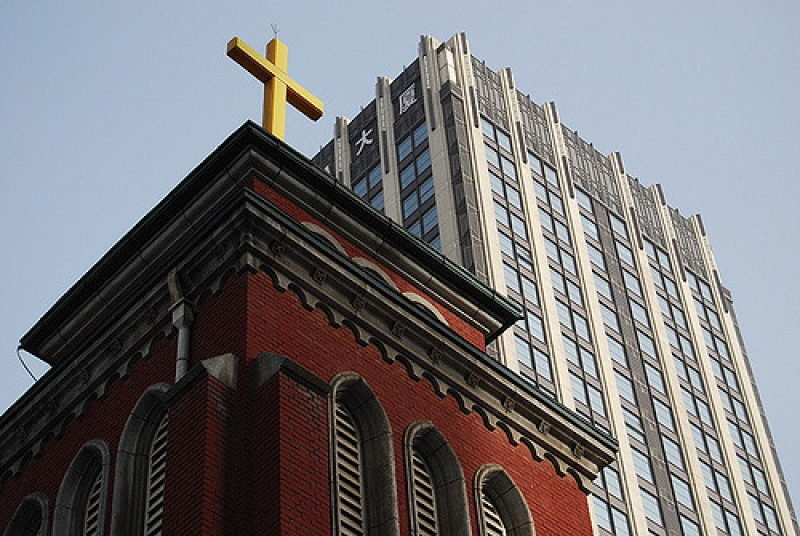
ChinaAid President and Founder Bob Fu reveals that the Chinese Communist Party's "Freedom of Religious Belief" Policy actually aims to stop people from believing any faith.
"The intent of the CCP appears to be to prevent the spread of religion. In the early 1990s, in addition to attempts to decrease the influence of foreign political entities utilizing religion for their own ends, Chinese authorities increased their efforts to stop the infiltration of foreign religious organizations," Fu said in the ChinaAid website.
He cited that during the religious affairs national conference of the Chinese Communist Party in June 4, 1958, the content and intent of the freedom of religious belief policy was revealed by China Central Party School Principal Li Weihan.
"The freedom of religious belief policy is a revolutionary motto. We have adopted this motto and must enlarge its revolutionary content to end feudalism and prevent exploiting classes from forcing others to believe in religion," Weihan remarked.
"If we thoroughly implement this motto, believers will gradually change from believing in religion toward non-believing," Weihan stressed. "In short, the freedom of religious belief policy is our Party's basic policy towards religion. We can adopt only this policy, not any other policy."
Fu highlighted that China has put up a facade by aligning with he United Nation's human rights treatise to keep hidden its true intention for its freedom of religious belief policy based on information from the Human Rights In China.
The six human rights treatise China supports are: Convention on the Elimination of All Forms of Discrimination against Women; International Convention on the Elimination of All Forms of Racial Discrimination; Convention against Torture and Other Cruel, Inhuman or Degrading Treatment or Punishment; Convention on the Rights of the Child; International Covenant on Economic, Social, and Cultural Rights; Convention on the Rights of Persons with Disabilities.
In addition, Fu raised that China began supporting the said treatise in mid-2014 and there had been no changes in is support as of February 2016. China also projects that it supports other religions by welcoming it in China.
China's religious policy model, as per Fu, is full of contradictions because "State fails to adhere to its own or international guidelines regarding freedom of religious belief." Contradictions also exist "between the principles of China's constitution and religious regulations, including Party- or State-issued secret documents" and "between China's signed pledges and those signed through unratified international obligations regarding human rights and religious freedom protections."
Besides being contradictory, China's religious policy is also unstable as per Fu. China's "inability to enforce specific laws," "conflict of interest between central and local government" due to a desire for "political control," and "controls on religion" especially through the suppression of religious minorities" prove to be counterproductive, Fu said.
In his newly-released book entitled, "The Politics of Inclusive Pluralism: A Proposed Foundation for Religious Freedom in a Post-Communist, Democratic China," Fu synthesizes that "freedom, not repression promotes a more peaceful, prosperous, and perdurable society. Particularly, religious freedom."
Recently, the Chinese Communist Party released new rules for its Chinese Catholic Patriotic Association that details the process for selecting, approving, and ordaining bishops even without Vatican approval; the roles of their chosen clergy; and membership regulation.




























